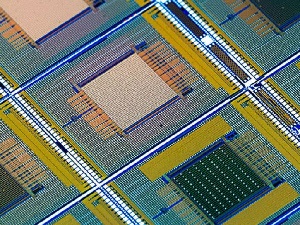



Date:19/07/18
 It’s not quite a tricorder from Star Trek, but a new portable laptop-size device can identify dozens of different microbes in your body within hours by speed reading key genetic markers. The test could dramatically improve treatment of infectious diseases and reduce antibiotic resistance by ensuring that doctors prescribe only those medications for which the bugs are vulnerable.
It’s not quite a tricorder from Star Trek, but a new portable laptop-size device can identify dozens of different microbes in your body within hours by speed reading key genetic markers. The test could dramatically improve treatment of infectious diseases and reduce antibiotic resistance by ensuring that doctors prescribe only those medications for which the bugs are vulnerable.
Physicians already have tests to identify microbes by their genetic makeup. But these usually involve growing the organism in a lab dish, a process that can take days or weeks. That often leaves them guessing about how to best fight an infection until the results come in.
Now, researchers at InSilixa, a biotech company in Sunnyvale, California, report that they’ve created a new biochip (pictured) that can complete microbial scans in less than 2 hours with no culturing needed. When a sample—say, a cheek swab or blood draw—is loaded on the chip, the reader carries out five separate chemical procedures to isolate genetic material and screen it against known pathogenic sequences. The researchers report today in Nature Biotechnology that they used their chip to identify specific mutations that confer antibiotic resistance in seven different microbes—all at the same time. They also used a separate chip to spot 54 different mutations associated with antibiotic resistance in different strains of the microbes that cause tuberculosis. The team’s results perfectly matched those from standard genetic profiling techniques.
In the future, the team says it expects to be able to profile up to 100 microbes simultaneously. And the company plans to create an open-source platform to enable clinicians in different parts of the world to create custom chips to scan for microbes common in their area.
This chip can quickly identify the microbes living in your body
 It’s not quite a tricorder from Star Trek, but a new portable laptop-size device can identify dozens of different microbes in your body within hours by speed reading key genetic markers. The test could dramatically improve treatment of infectious diseases and reduce antibiotic resistance by ensuring that doctors prescribe only those medications for which the bugs are vulnerable.
It’s not quite a tricorder from Star Trek, but a new portable laptop-size device can identify dozens of different microbes in your body within hours by speed reading key genetic markers. The test could dramatically improve treatment of infectious diseases and reduce antibiotic resistance by ensuring that doctors prescribe only those medications for which the bugs are vulnerable.Physicians already have tests to identify microbes by their genetic makeup. But these usually involve growing the organism in a lab dish, a process that can take days or weeks. That often leaves them guessing about how to best fight an infection until the results come in.
Now, researchers at InSilixa, a biotech company in Sunnyvale, California, report that they’ve created a new biochip (pictured) that can complete microbial scans in less than 2 hours with no culturing needed. When a sample—say, a cheek swab or blood draw—is loaded on the chip, the reader carries out five separate chemical procedures to isolate genetic material and screen it against known pathogenic sequences. The researchers report today in Nature Biotechnology that they used their chip to identify specific mutations that confer antibiotic resistance in seven different microbes—all at the same time. They also used a separate chip to spot 54 different mutations associated with antibiotic resistance in different strains of the microbes that cause tuberculosis. The team’s results perfectly matched those from standard genetic profiling techniques.
In the future, the team says it expects to be able to profile up to 100 microbes simultaneously. And the company plans to create an open-source platform to enable clinicians in different parts of the world to create custom chips to scan for microbes common in their area.
Views: 741
©ictnews.az. All rights reserved.Similar news
- The mobile sector continues its lead
- Facebook counted 600 million active users
- Cell phone testing laboratory is planned to be built in Azerbaijan
- Tablets and riders outfitted quickly with 3G/4G modems
- The number of digital TV channels will double to 24 units
- Tax proposal in China gets massive online feedback
- Malaysia to implement biometric system at all entry points
- Korea to build Green Technology Centre
- Cisco Poised to Help China Keep an Eye on Its Citizens
- 3G speed in Azerbaijan is higher than in UK
- Government of Canada Announces Investment in Green Innovation for Canada
- Electric cars in Azerbaijan
- Dominican Republic Govt Issues Cashless Benefits
- Spain raises €1.65bn from spectrum auction
- Camden Council boosts mobile security





















